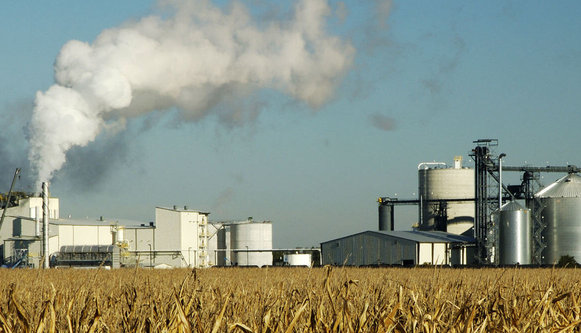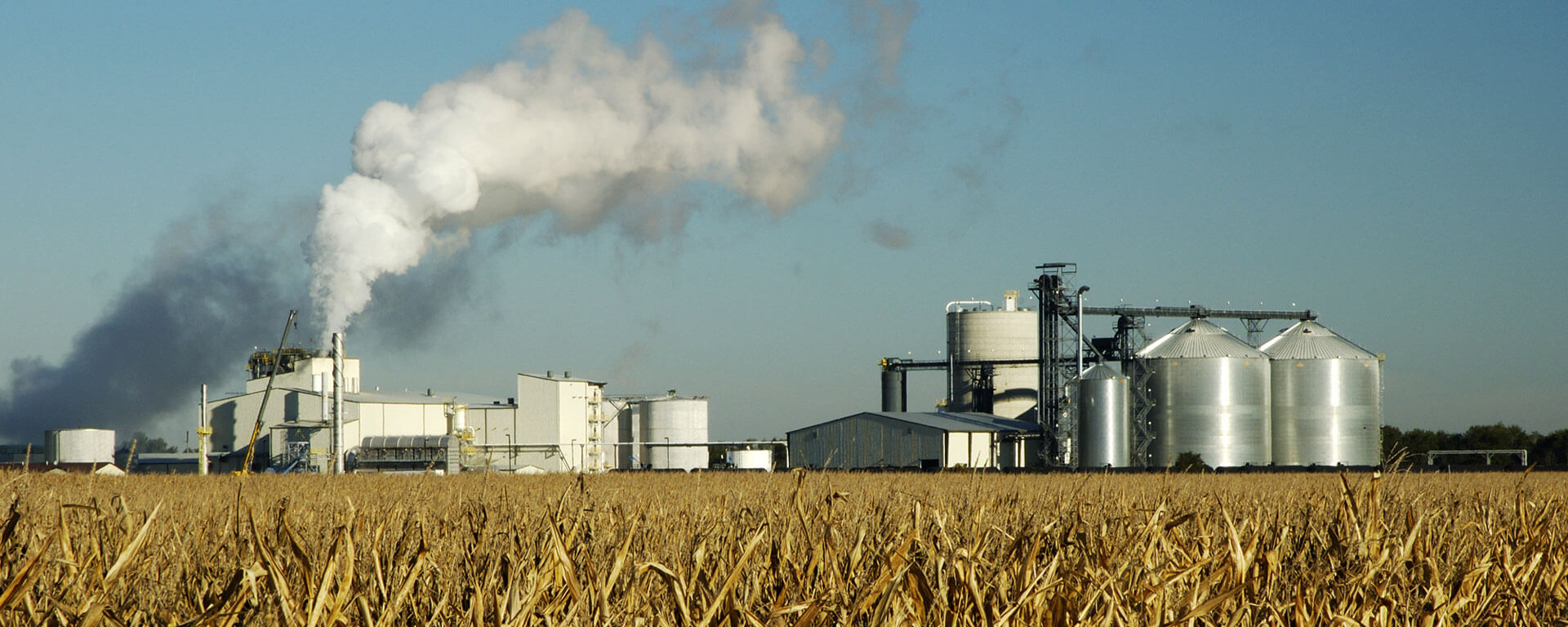

Ethanol Today
The journey to our current crisis.
Ethanol Today
The journey to
our current crisis.

It started with a good idea.
In 2005, in an effort to reduce carbon emissions, promote energy independence, and invest in renewable fuels, Congress passed the Energy Policy Act of 2005 and expanded the Energy Independence and Security Act of 2007. This legislation included mandates to incrementally increase the amount of ethanol in fuel, and subsidized the economic benefits for farmers growing corn for ethanol production and for ethanol producers. Although direct corn ethanol subsidies have been eliminated, significant subsidies in the form of crop insurance and higher prices at the pump are still in place.

Ten years later, the idea has failed.
The ten-year impact of corn-based ethanol has been devastating. The production of corn-based ethanol actually leads to increased carbon emissions when the production cycle – from growth to refining and transporting – is factored in. Carbon emission rates are also impacted by the conversion of forests and prairies. These areas once stored carbon naturally but now have been converted to grow corn.
It’s not just the air. Raising corn demands increased fertilizer use, and the runoff from this use has affected critically needed water sources. Fertilizer in runoff not only causes algae blooms in nearby lakes and rivers – it impacts our entire network of water, from the Midwestern plains down to the Gulf of Mexico.

Other ideas have delivered on what ethanol promised.
The US has made more strides in achieving fuel independence through new oil drilling techniques. The U.S. is exporting oil for the first time in more than 20 years. And innovations that have increased the fuel efficiency of today’s vehicles have done more to reduce emissions…not that it is clear that corn based ethanol even creates net energy.

It’s more than environmental costs.
Subsidy driven investments in corn-based ethanol have created false markets for corn and led to rising costs throughout the farming industry. Now farmers and ranchers who rely on corn as a feed source must pay more to raise their animals. Eventually, you pay through increased grocery prices.

It is time to Rethink Ethanol.
In 2005 ethanol was a new idea worthy of pursuing. Innovators and farmers put tremendous efforts into making the idea a reality. Federal subsidies and import tariffs on corn supported their efforts.
It didn’t work.
But Federally mandated levels of ethanol in the fuel supply still exist. With so much evidence against corn-based ethanol production, our responsibility is clear. It’s time to rethink our policies and limit the ethanol mandate. It’s time to pursue new innovations that will more effectively address carbon emissions and energy independence.
We must take a hard look at the issues and work for improved and more beneficial solutions for our nation’s energy and environmental needs. It is past time to Rethink Ethanol.

RETHINK ETHANOL
Rethink Ethanol is a non-profit group dedicated to increasing awareness and initiating changes in ethanol usage in order to help the environment and people.
© 2016 Rethink Ethanol | Privacy Policy
CONTACT US
Email: info@rethinkethanol.com
FOLLOW US
